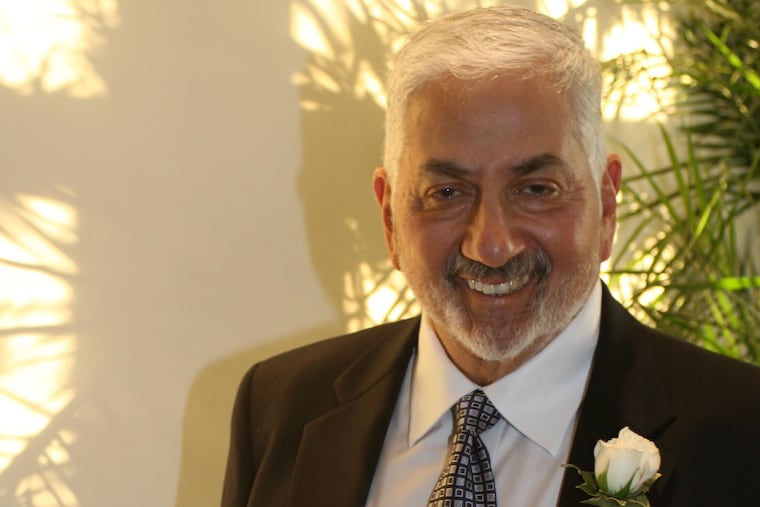Stephen M. Kay, clinical psychologist and innovative teacher, dies at 79
He taught high school English and history in Philadelphia and later became a clinical psychologist who specialized in the emotional development of men, mental illness, and addiction.

Stephen M. Kay, 79, of Wynnewood, a clinical psychologist who focused on father-son relationships, and a high school teacher who made the world his classroom, died Wednesday, March 24, at Penn Medicine’s Good Shepard Hospice in Philadelphia of a subdural hematoma after a brain injury.
Dr. Kay began his career as an inspiring high school English and history teacher in Philadelphia, and later became a noted clinical psychologist who specialized in the emotional development of men, mental illness, and addiction.
He wrote his doctoral dissertation about “father hunger,” what sons got from their fathers and what they really wanted, and became a leader among therapists who work with men and father-son issues.
In a 1991 article in The Inquirer, Dr. Kay said he was drawn to the father-son dynamic after examining his rocky relationship with his own father.
“When he died, there was, in a way, almost a sense of relief for me,” he said. “He was such a powerful figure. At the time I didn’t have a sense of what I had lost. That came later, along with the sadness that I have felt over the years, the father hunger.”
Dr. Kay had a private practice and worked at, among other places, the Horsham Clinic and Project Transition. He earned a master’s degree in education from Temple University in 1964 and received his doctoral degree in psychology from the Fielding Institute, now Fielding Graduate University, in 1989.
He was a big fan of the poet Robert Bly, who wrote extensively about father-son relationships, and he credited a reading by Bly that he attended in the 1980s with inspiring him to become a psychologist. Before that, Dr. Kay worked as a teacher at Philadelphia’s Julia R. Masterman Laboratory and Demonstration School, and the Parkway Program’s “school without walls.”
“He did things to help people,” said his wife, Rhonda Karp.
As a teacher, Dr. Kay introduced his English students to a wide variety of new and provocative authors, and his history students to competing viewpoints on race and social justice. He took them to Shakespeare festivals and Broadway shows, exposed them to experimental films and contemporary music, and generally made his lessons as much about their lives as words in a textbook.
“Many of his students went on to apply to colleges that would never have crossed their paths without his tireless influence,” his family wrote in a tribute.
He left the classroom in 1984 to become a psychologist and was a frequent speaker at seminars and public discussions about parenting and related issues. When asked in 1991 what he considered the most important thing a father could give a son, he said: “A sense of belonging, almost in the way Indian fathers initiated their sons into the tribe. This gives the son a sense of stability.”
Born Stephen Mark Kricheff in Philadelphia on April 8, 1941, he later shortened his last name to Kay. He graduated from Overbrook High School in 1959, and one of his first jobs was overseeing games of chance at his father’s traveling carnival, Kay Amusement.
He married Honey Black in 1962, and they had son David and daughters Mira and Brielle. They also welcomed one of his students, Rebecca Vaughan, into the family as one of their own. The couple divorced in 1986, and she died in 2007. He married Karp in 1989, and they had a son, Robert.
Dr. Kay liked to attend Eagles and Flyers games, ski, and sail. He went to the opera and ballet. He spent many summers in Provincetown, Mass., and winters in Florida, and made sure the family was together as often as possible on vacations.
“He impacted more lives than just about anyone I have ever met,” said his son David.
In addition to his wife and children, Dr. Kay is survived by eight grandchildren, three great-grandchildren, and other relatives.
A Zoom service was held Friday, March 26. Burial was private.
Donations in his name may be made to Philabundance, 3616 S. Galloway St., Philadelphia, Pa. 19148.